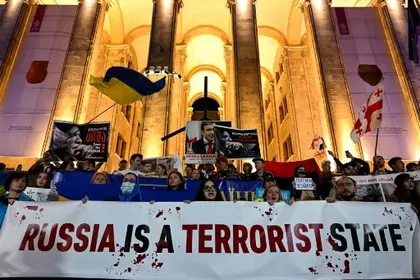Calls for peace talks in the Ukraine war are growing loud again. But is there a basis for this right now? Commentators ask what role diplomacy should play as a means of improving mutual understanding and securing peace.
Today, Europe’s press debates the ongoing Russian invasion of Ukraine. Here are some opinions from a selection of European publications, presented by eurotopics.
JOIN US ON TELEGRAM
Follow our coverage of the war on the @Kyivpost_official.
Russia seems willing to negotiate
The chances for talks with Moscow have perhaps never been better, writes former UN diplomat Victor Ângelo in Diário de Notícias:
“The Russian leadership may now be more willing to enter a negotiation process than it was some time ago. The about-face on the blockade of grain ships – the Kremlin went from a very tough to a moderate position within a few days without any reason to justify this change of policy – means that there is a willingness to get out of the mess they got themselves into on 24 February. … If pressure is exerted on the Kremlin with the necessary political skill, it could be possible to start talking about a peace process in the near future.”
Moscow not really interested
The New Statesman tries to get to the bottom of Russia’s statements regarding talks:
“Moscow never says it has no interest in negotiations, but then patiently explains why the problem holding them back is Kyiv’s refusal to accede to its demands. Putin has shown no urgency when it comes to bringing the war to a quick conclusion. Even if a serious offer was put on the table we cannot assume that he would give it careful consideration. We need to consider another possibility: that Putin has no interest in ending the war soon if this would require him acknowledging that he has failed to achieve his key objectives.”

Diane Francis Interviews Mikhail Zygar, Yaroslav Trofimov on Prospects of Russia’s War on Ukraine
Holding talks is not capitulation
Writing in Le Vif/L’Express, Middle East expert Sébastien Boussois makes the case for diplomacy even in seemingly hopeless situations“Diplomacy and dialogue are indispensable if we no longer want to resort to war to make ourselves heard. Even if it’s not easy, talking to one another does not mean capitulating. We must also make a considerable effort to learn about and get to know the new powers that we reject out of ignorance. Through contact with us, they will hopefully be able to develop in the ‘right direction’ – namely ours. … If we had done more to engage with Russia instead of rejecting it and pushing it away for so long, it could have been at the centre of our dynamic and had a very different status by now.”
Putin must suffer a painful defeat
If those responsible for Russian war crimes are to be punished there is only one option, political scientist Roman Kuźniar stresses in Rzeczpospolita:
“Russia must suffer a painful defeat in this conflict. The outside world will not be able to punish Putin and his accomplices. They will not be brought before any international tribunal (or at most only in absentia). So only a painful defeat for Russia, the consequences of which are also be felt by the Russians, will make them demand just punishment for the criminals who plunged Russia into disaster with the invasion of independent Ukraine.”
You can also highlight the text and press Ctrl + Enter






